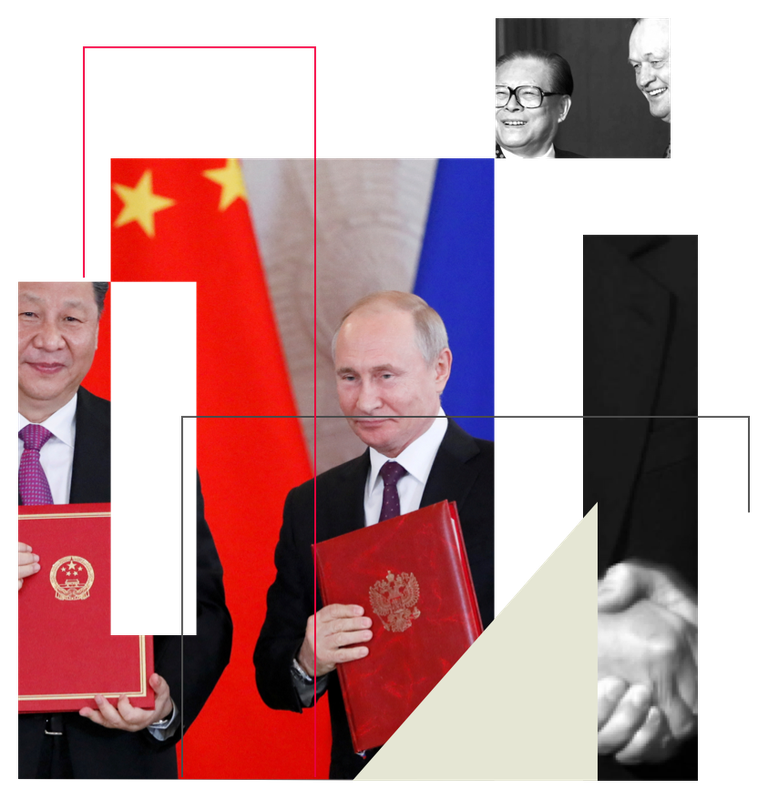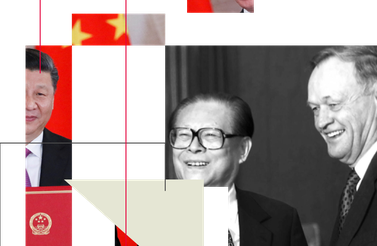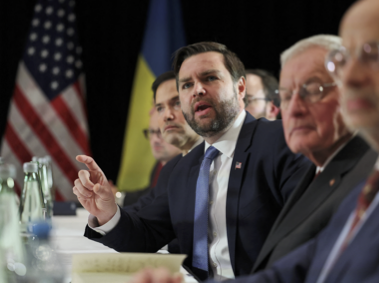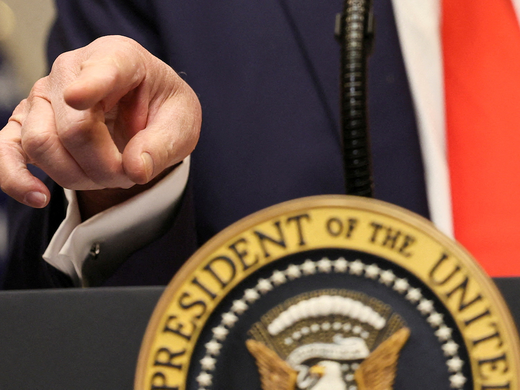Susan Colbourn has described how authoritarian states have historically provided “a sort of organizing logic” for the conduct of Canadian foreign policy, while confounding its stewards with the “perennial dilemmas” that arise when a country committed to democracy and human rights engages those that embrace neither. Her thesis is an apt starting point for the analysis that follows. Like Nazi Germany and the Soviet Union, Xi Jinping’s China and Vladimir Putin’s Russia are of concern to Canada because, as great powers, they have a disproportionately large impact on the global environment that conditions the policy choices on which Canada’s security and prosperity depend. The war that Putin has unleashed in Ukraine brings this home with tragic clarity. Although a far cry from the “totalitarianism” that menaced Western capitals in the twentieth century, the regimes in Beijing and Moscow are unmistakably authoritarian, and their outlooks complicate our dealings with them in important ways. Colbourn’s thoughtful discussion of the difficulty inherent in balancing Canada’s support for democracy and human rights with “other priorities” brings this home. Examples are seemingly legion, for Liberal and Conservative governments alike, of principles taking a back seat to other interests, most often commercial gain.
The world today is not what it was even five years ago, let alone during the distant post-1945 era that forged Canada’s internationalist ideals. The global environment and the challenges Canada faces have changed incontrovertibly, and yet Ottawa persists in framing its policy debates — and its approaches to global actors as significant as China and Russia — in a manner suggesting they have not. The most important challenge Canada faces in 2022 is a southern neighbour no longer inclined or able to exercise the leadership on which Canadian foreign policy has traditionally relied. “Internationalism,” the collaborative enterprise aimed, in Michael Tucker’s (1980, 2) phrase, at “the enhancement of interests or values commonly shared with others outside of Canada, with a view to helping create or sustain a better world order,” successfully underpinned Ottawa’s diplomacy after 1945 because it dovetailed with the purposes and unprecedented capabilities of the American superpower. As American purposes and capabilities evolve, and not necessarily for the better, Canada needs to ensure that the laudable aims of its internationalist vocation continue to align with the means available for carrying them out.
Recent indications are not encouraging. To be sure, Foreign Minister Chrystia Freeland’s June 6, 2017, address to the House of Commons was a promising start. Acknowledging that the United States had “come to question the very worth of its mantle of global leadership,” Freeland (2017) declared it was time that Canada set “our own clear sovereign course.” However, her call to action turned out to herald more of the same, nowhere more tellingly than in Marc Garneau’s September 2021 UN evocation of Lester Pearson, as if the legacy of the Nobel laureate’s achievements in the 1950s continues to bear directly on the challenges of our own times.1 The same inattention has resulted in the appointment of five different foreign ministers in a span of six years, as if the insights and influence forged by experience and sustained, personal diplomacy are somehow superfluous to the needs of Canadian foreign policy.
Canada’s policy toward Russia is a good illustration of how basing external interactions on outdated thinking clouds our ability to effectively meet the challenges of the present. Although the war in Ukraine has opened a new and tragic chapter in the history of East-West relations, Canada’s approach to Russia during the decade leading up to that conflict did us little credit. For Ottawa, demonstrating our revulsion at the excesses of Putinism consistently took priority over any nuanced evaluation of how engagement might both have amplified that revulsion while selectively advancing our commercial, security and people-to-people interests. This is a calculus that virtually all of Canada’s like-minded allies successfully undertook. For them, firm support for sanctions over Russia’s brazen (but then still limited) interference in Ukraine coexisted with ministerial exchanges and the active promotion of non-sanctioned commercial interests with Russia. Yet when war broke out in February 2022, a Canadian foreign minister had not visited Russia in more than a decade, giving us less of a voice in the diplomacy of this crucial period than our interests clearly warranted.
This is not to suggest that Canada should have “softened” its opposition to Moscow’s pernicious behaviour, but rather to ask why Canada’s Russia policy before the war lacked the dexterity of which others seemed capable. Domestic politics — the influence of the (robustly anti-Putin) Canadian Ukrainian community, and the desire of all politicians to court it — of course played a role. But the decisive factor, I would suggest, was the mindset forged through decades of taking for granted the protective shield of the United States, which gave Canada a degree of security after 1945 of which countries less desirably located in the international system could only dream. Since state survival was never really at stake, Canadians could afford to be less hard-nosed than others; a certain moral superiority crept into our brand of internationalism, a sense that we are somehow better that makes us feel good about ourselves as we promote the values of which we are justifiably proud. If the shield that made that possible has begun to crack, some serious reckoning is in order.
Since state survival was never really at stake, Canadians could afford to be less hard-nosed than others; a certain moral superiority crept into our brand of internationalism.
Canada’s approach to China is no less dysfunctional. Here, at least, we are in good company. Beijing’s increasingly belligerent swagger now touches every member of the international community; all our like-minded partners are grappling with how to manage China’s seemingly inexorable rise and unrepentant authoritarianism. Such concerns are well founded, but there is a harshness to the discourse that reflects something more than a preoccupation with shifts in relative power. A palpable sense of betrayal infuses this debate, most evident in Washington but present in Ottawa as well. Xi’s dictatorship is an affront to four decades of engagement intended to bestow the blessings of democracy upon China’s millions. No matter that perceptive observers such as James Mann (2007) long ago anticipated that the Chinese Communist Party’s brutal monopoly on power might endure, or that others have acknowledged the naked self-interest that led relevant Western elites to assert otherwise (Mulroney 2020). By evolving in accordance with its own long history and unique political culture, China has defied the claim that democracy and respect for human rights are universal, challenging a pillar of the post-Cold War international order and the West’s foreign policy raison d’être.
Dealing with China has historically been an endeavour that made Canadians proud about their role in the world. From the missionary impulse that informed Canada-China exchanges in the nineteenth century to Pierre Trudeau’s prescient opening to China and the Team Canada missions of more recent times, Canadians believed that they sought what was best for the Middle Kingdom. Engagement to foster democracy and mutual prosperity promised a “win-win” outcome for all concerned. Disillusionment that things turned out otherwise, quite apart from justified grievance over the “two Michaels,” helps explain why developing a sound China policy is proving so difficult. This is not to downplay the many other considerations that complicate our bilateral relations, Beijing’s increasingly assertive “wolf warrior” diplomacy foremost among them (Zhu 2020). Aggrieved umbrage in Ottawa (as elsewhere) over Beijing’s enduring authoritarianism does not help matters, however. Surely, the principal lesson of a half-century of engaging China is the importance of seeing the world as it is, rather than as we believe or would wish it to be.
All states exaggerate threats to some degree. This is simply prudent in a world with no protective higher authority, where not erring on the side of caution can prove fatal (Mearsheimer 2001). But the sense of betrayal that Canada and many like-minded partners feel about Xi’s China has further distorted this tendency. A similar sentiment amplifies our distaste for Putin’s Russia, although in that case the memories of Western efforts to export democratic enlightenment have become more distant. The outcome in both cases, however, is to build up Putin and Xi to be much more powerful than they are while overlooking the significant challenges both face. We are right to accentuate, and to seek to address, the strains plaguing democracy in 2022, but in the process, we risk downplaying the fact that our authoritarian rivals are no better off.
However troubled the contemporary democratic enterprise (and commemorations of the January 6, 2021 assault on the US Capitol remind us it is troubled indeed), the authoritarian cause remains saddled by fundamental shortcomings of its own making, capital flight and chronic corruption chief among them. Although Yuen Yuen Ang’s (2020) recent study shows clearly how, in China’s case at least, corruption in no way portends imminent collapse, Chinese and other anti-democratic elites’ foreign real estate, investment and educational choices belie a lack of faith in the robustness of their own institutions. The resulting insecurities are reflected in the visceral fears of “coloured revolution” expressed in official discourse in both China and Russia, and in the massive sums both spend on domestic security apparatuses to prevent it (Sarty 2020). The trolling, hacking and exploitation of social media through which Beijing and Moscow seek to subvert Western societies, and which have fostered their image as all-powerful threats to our security and well-being, are in fact signs of their relative weakness. They are efforts by regimes that find themselves on the wrong side of history to counter the still-compelling draw of Western freedoms with the only ham-fisted tools at their disposal (Sarty 2021). The war in Ukraine is a tragic case in point. None of this is to diminish the democratic West’s own internal challenges. But it is a reminder of the importance of comparative perspective. Every difficulty or setback on our side does not necessarily mean our authoritarian rivals are advancing.
For Canada, seeing China and Russia as “more fragile than frightening” would be an important first step toward putting our foreign policy on a more effective footing (Sarty 2020). The stark, Manichean discourse on these countries, reminiscent of the “white hats vs. black hats” approach once favoured by Foreign Minister John Baird, does not serve Canada well (MacKinnon et al. 2015). Instead of trash-talking from afar and spinning a great line about our values, we need to undertake a serious, far-reaching and dispassionate assessment of our national interests and how to advance them in a challenging world. Such advice will not be welcomed by those accustomed to viewing international affairs as a realm for self-serving rhetoric and easy appeals to domestic constituencies. But it is better suited to the demands of present-century world politics than the reflexive formulas of the last.
This is not just to take Canada to task. Trying to grasp a world in which democracies are under strain raises larger questions about the democratic cause writ large. That its fate should be in doubt is nothing short of astonishing. Francis Fukuyama (1989) was right when he called the triumph of the liberal-democratic ideal “the end of history.” As a lifetime practitioner in the realms of Russian and Chinese affairs, I can assert with some conviction that the drawing power of this ideal still stands head and shoulders above anything that Beijing or Moscow has on offer. Our rivals’ intentions are inimical to our interests, and we need to guard against them. But there is no prospect that the “lure” of Putinism or Xi’s dictatorship will displace the global appeal of free societies and free markets, which extends, selectively but importantly, to the very authoritarian elites who challenge it.
Sins of omission and commission, spearheaded by Washington and abetted by its allies, have squandered the West’s triumph in the Cold War and helped to unleash the forces that menace us from without and within. Russian machinations in Ukraine not only reflect Moscow’s determination to relitigate the Soviet Union’s collapse, but shortcomings in our own management of Russia’s Cold War defeat. The West can scarcely be blamed for the menace that is Xi’s China, but decades of Western self-interest and self-delusion have compounded that challenge. And although the origins of democratic backsliding lie well beyond the scope of this essay, there is surely something to Ben Rhodes’ (2021) argument that elements of dysfunction in post-September 11 America — corrupt money in politics; demonizing the foreign “other” — have found reflection in the playbooks of leading authoritarians from Hungary’s Viktor Orban to Vladimir Putin.
We need to rethink the notion that the world can be made safe for democracy. Surely the August 2021 debacle in Kabul, following on the heels of events in Syria, in Libya, in Iraq and even the war in Vietnam, vindicates John Mearsheimer’s (2018) assertion that America’s effort to remake the world in its own image is a “great delusion.” Whether we like it or not, the values at the heart of Canadian foreign policy, the promotion of democracy and human rights above all, have been validated and entrenched over time precisely because of our (and our like-minded Western partners’) intimate connection with American power. As the aims and extent of that power evolve, values deemed to be “universal” when that power was at its height might take on a different cast.
The implications of this are sobering but unavoidable: “We need to get more serious about our diplomacy than ever before” (Donaghy and Axworthy 2020). At a minimum, we need an informed debate about whether and how the ideals and foreign policy prescriptions that have served Canada in the past align with the truly disturbing array of challenges we face in 2022. If (and it is a big “if”) the requisite political will can be found, Canada may at last arrive at the “clear sovereign course” that our tumultuous times demand.




